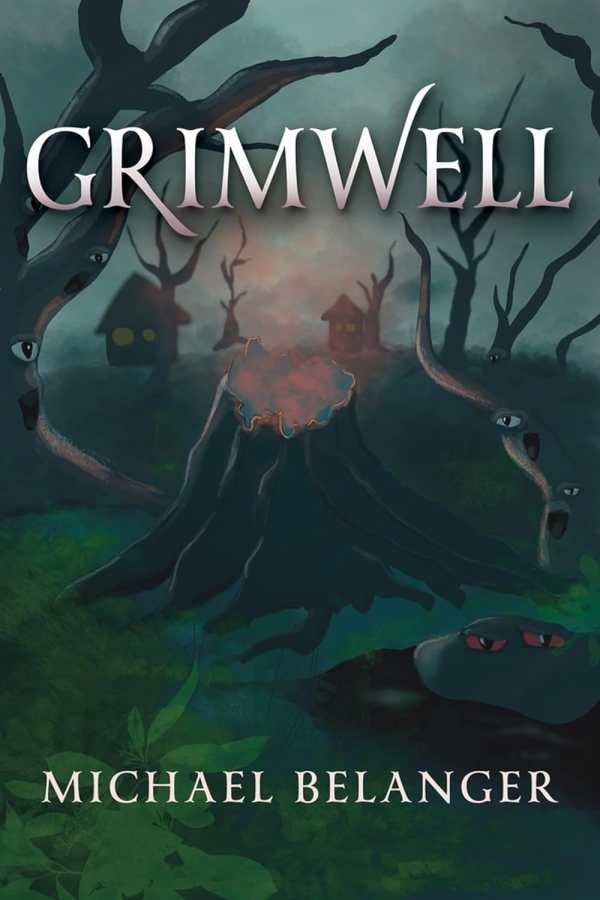Grimwell
Imbued with humor, Grimwell is a refreshing take on the hero’s journey.
In Michael Belanger’s satirical fantasy novel Grimwell, simple changes turn a mundane life into one of adventure.
Derek, an aimless barista, struggles to move forward after the death of his mother and an abrupt breakup from his fiancée. He retreats among the books at the local library attached to the café where he works. There he finds a strange novel by a World War II veteran, Chester, which details the life of a fantasy creature, a grimkin. Derek suspects that the book may be cursed: His life begins to intersect with the life of the fairy-tale creature, and he undergoes physical and psychological changes.
Imbued with humor, the text draws on fantasy and romance tropes to critique the genres, offering a refreshing take on the traditional hero’s journey. In one scene, mythical giants try to eat two heroes. In the inset fairy tale, Chester writes, “It’s always unfortunate for a writer when a stereotype proves to be true. I would’ve loved giants to be smart and cunning, so as not to fit the archetype of the giant oaf. A writer’s job is to surprise, not merely capture.” The humorous veteran’s ironic tone is used to critique the predictability of his story while questioning how writers can effectively incorporate common fantasy themes into new stories.
The narrative is segmented into three parts with textual diversity. There are inset narratives from the magical book about the grimkins and dialogue from a screenplay in which Derek’s brother has a starring role. The sections’ formatting variations and different writing styles help to develop both worlds: The fairy-tale inset is geared toward younger readers, for example, leveraging simple language and a lexicon of similar-sounding neologisms (“grimpledee,” “grimplehoot,” and “grimkinning” among them) with the sonority of a children’s story, and the screenplay engages in science fiction melodrama with intentionally cheesy lines about aliens that the narrator sometimes guesses before they are said.
But the book’s pacing is lopsided. It builds at a gradual rate toward the climax, in which the fantasy realm is made accessible to Derek; however, this moment occurs with only a few chapters left in the book. And the resolution is hasty, summarizing multiple actions in a few paragraphs.
Still, the book handles its hefty themes of grief, family, and daily struggles well, grounding it in reality. These themes are a compelling counterpoint to the high-fantasy elements that appear elsewhere. In a scene where Derek hides the transformed parts of himself, he and his unsuspecting brother Tom have an emotional discussion about their willingness to mend their fractured relationship. Tom’s girlfriend Achelia addresses Derek and Tom’s path forward while out to dinner: “‘You two are brothers,’ Achelia said sagely, and even though she was only stating fact, it seemed to resonate with a deeper truth.” Such tones add maturity and emotional heft.
A fantasy novel about taking control of one’s life after hardships, Grimwell delivers humor and heart.
Reviewed by
George Hajjar
Disclosure: This article is not an endorsement, but a review. The publisher of this book provided free copies of the book and paid a small fee to have their book reviewed by a professional reviewer. Foreword Reviews and Clarion Reviews make no guarantee that the publisher will receive a positive review. Foreword Magazine, Inc. is disclosing this in accordance with the Federal Trade Commission’s 16 CFR, Part 255.

